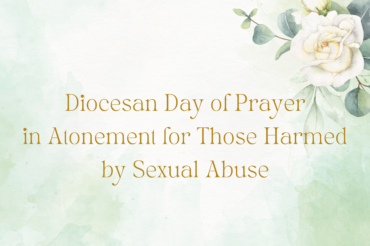Doing the Catholic Minimum
“Anything worth doing is worth doing badly.” G.K. Chesterton
It may sound strange to ask, “What is the minimum I need to do as a Catholic Christian?” After all, it was Jesus who said, “Be perfect, as your heavenly Father is perfect” (Mt 5:48). But, it is an important thing to know. We do the same thing for virtually every part of life. We want to know the minimum standards so that we can at least rise to them: from classes we take in school, to work expectations, to the Kingdom of God. If there is no minimum standard, we usually end up striving for nothing.
The minimum is another way of saying what is essential. The minimum can also be quite noble. Doing the minimum is something that can motivate us to begin what appears to be overwhelming when taken as a whole. Many people forego even attempting some of the greatest things in life because it looks too daunting: going to college, getting married, having children, becoming a priest, becoming a nun … becoming a saint! Another way to put this is in the words of the old adage: “The ‘perfect’ is the enemy of the ‘good’.”
We need something to hold ourselves accountable, so that we are not adrift without any standard at all.
So, what is the Catholic minimum? Traditionally, this has been expressed in a list of five things called the “Precepts of the Church.” In the words of the Catechism of the Catholic Church (#2041), the Precepts of the Church are, “Positive laws made by Church authorities to guarantee for the faithful the indispensable minimum in prayer and moral effort, for the sake of their growth in love of God and neighbor.” The indispensable minimum: this means that if one is not doing even these five minimal things, one is in grave spiritual peril. You now see why having some idea of the bare minimum is important!
So, what are these five precepts? Here is a list, along with commentary, as found in the Catechism in paragraphs 2042 and 2043:
- The first precept (“You shall attend Mass on Sundays and on holy days of obligation and rest from servile labor”) requires the faithful to sanctify the day commemorating the Resurrection of the Lord as well as the principal liturgical feasts honoring the mysteries of the Lord, the Blessed Virgin Mary, and the saints; in the first place, by participating in the Eucharistic celebration, in which the Christian community is gathered, and resting from those works and activities which could impede such a sanctification of these days.
- The second precept (“You shall confess your sins at least once a year”) ensures preparation for the Eucharist by the reception of the sacrament of penance and reconciliation, which continues Baptism’s work of conversion and forgiveness.
- The third precept (“You shall receive the sacrament of the Eucharist at least during the Easter season”) guarantees as a minimum the reception of the Lord’s Body and Blood in connection with the Paschal feasts, the origin and center of the Christian liturgy.
- The fourth precept (“You shall observe the days of fasting and abstinence established by the Church”) ensures the times of ascesis, self-discipline, and penance which prepare us for the liturgical feasts and help us acquire mastery over our instincts and freedom of heart.
- The fifth precept (“You shall help to provide for the needs of the Church”) means that the faithful are obliged to assist with the material needs of the Church, each according to his own ability.
Surveying the precepts, one can see that they keep us connected to Jesus and one another in the Church as a kind of “lifeline.” Of course, one should aspire to more than a bare minimum. A wife might likely be offended if her husband asked, “Dear, what is the least I need to do to be a good husband?” But, consider for a moment why a question like that is important. It’s not that the husband only desires to do the minimum, but he certainly wants to not fail to do the minimum, and he cannot aspire to that and more until he knows. The same is true for our life in Christ. We are all created and called to be saints, but this only occurs through faith and perseverance over a lifetime, and the precepts give us a base line. As we grow in our love for Jesus and others, grace builds upon nature, and we aspire to more. Perfection in anything, including love, comes through faithful practice.
At a time when many people are drifting away from faith, it is good to revisit the precepts of the Church. They are an especially important marker for Catholic families striving to raise children to become lifelong Christian disciples.
+James V. Johnston, Jr.
Bishop of Kansas City-St. Joseph
Catholic Key, September 27, 2019 issue





